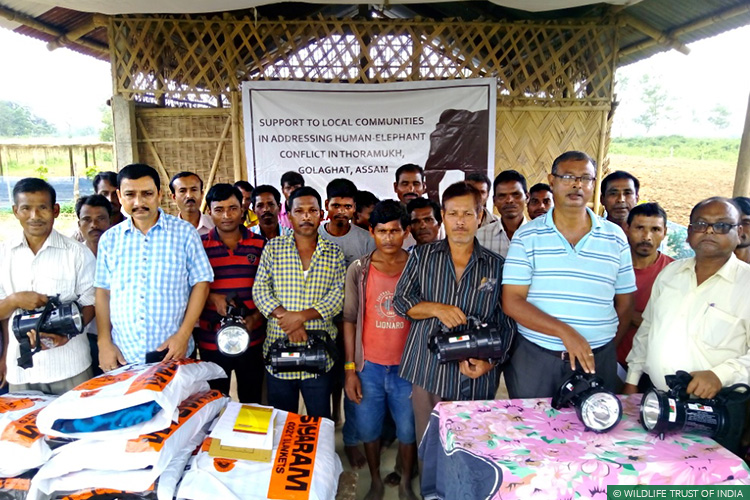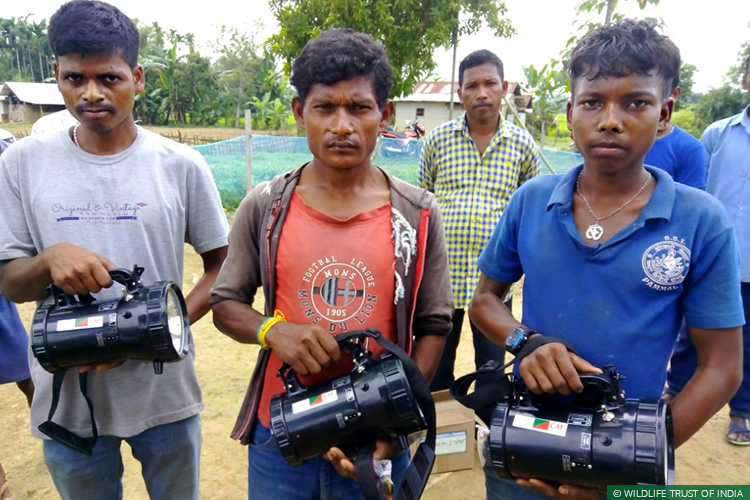
Golaghat District, Assam, October 23, 2017: As part of a Rapid Action Project (RAP) initiated by its Wild Aid division, Wildlife Trust of India (WTI), with the support of CAF India and Ms Alka Hingorani (an individual supporter), distributed field equipment to members of six local anti-depredation squads to help them tackle Human Elephant Conflict in the Thoramukh region of Golaghat. The equipment was handed over in the presence of Assam Forest Department officials at a small event organised by representatives of 12 conflict-prone villages on October 14.
This conflict mitigation initiative has been undertaken of the villagers’ own accord and provides vital ground support to the forest department.
The Thoramukh region has witnessed an escalation in Human Elephant Conflict in recent years. A field report suggests that over 280 acres of land is prone to crop raiding by elephant herds during the paddy season (September onwards), with 70 to 80 percent of crops being damaged every year on average. There are an estimated 1700 wild elephants in the landscape (Elephant Census, 2011), which lies in proximity to three Protected Areas – Nambor Doi Reserve Forest, Garampani Wildlife Sanctuary and Daigrung Reserve Forest – and includes the Kalaphar-Daigrung Elephant Corridor, a vital elephant movement path mapped in the latest edition of Right of Passage, WTI’s definitive publication on the 101 elephant corridors identified across India.
While the forest department has taken steps to reduce the incidence of crop raiding, the village communities unanimously felt that they needed to provide local assistance in addressing the issue. They constructed machans at strategic points using their own resources and formulated six anti-depredation squads, each comprising four to five village youth. Finding that squad members lacked basic field gear, WTI has provided them with high-powered searchlights and blankets, since they have to stay in the machans at night.
“We are thankful to WTI for providing us this much-needed equipment”, said Ram Baruah, a member of one of the anti-depredation squads, during the event on October 14. Krishnakant Mazumdar, the Beat Officer of the Juria Donlong forest beat was also present on the occasion and spoke to the villagers about the importance of ensuring the welfare of both people and wildlife. “The participation of local people is key to the success of any conservation initiative”, said Dilip Deori, who heads WTI’s Karbi Anglong Conservation Project; “WTI is pleased to lend its support to this conflict mitigation initiative, which has been undertaken of the villagers’ own accord.”
